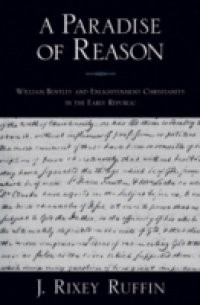William Bentley, pastor in Salem, Massachusetts from 1783 to his death in 1819, was unlike anyone else in Americas founding generation, for he had come to unique conclusions about how best to maintain a traditional understanding of Christianity in a world ever changing by the forces of the Enlightenment. Like some of his contemporaries, Bentley preached a liberal Christianity, with its benevolent God and salvation through moral living, but he-and in New England he alone-also preached a rational Christianity, one that offered new and radical claims about the power of God and the attributes of Jesus. Drawing on over a thousand of Bentleys sermons, J. Rixey Ruffin traces the evolution of Bentleys theology. Neither liberal nor deist, Bentley was instead what Ruffin calls a Christian naturalist, a believer in the biblical God and in the essential Christian narrative but also in Gods unwillingness to interfere in nature after the Resurrection. In adopting such a position, Bentley had pushed his faith as far as he could toward rationalism while still, he thought, calling it Christianity. But this book is as much a social and political history of Salem in the early republic as it is an intellectual biography; it not only delineates Bentleys ideas, but perhaps more important, it unravels their social and political consequences. Using Bentleys remarkable diary and a vast archive of newspaper accounts, tax records, and electoral returns, Ruffin brings to life the sailors, widows, captains and merchants who lived with Bentley in the eastern parish of Salem. A Paradise of Reason is a study of the intellectual and tangible effects of rational religion in mercantile Salem, of theology and philosophy but also of ideology: of the social politics of race and class and gender, the ecclesiastical politics of establishment and dissent, the ideological politics of republicanism and classical liberalism, and the party politics of Federalism and Democratic-Republicanism. In bringing to light the fascinating life and thought of one of early New Englands most interesting historical figures, Ruffin offers a fresh perspective on the formative negotiations between Christianity and the Enlightenment in the years of Americas founding.

